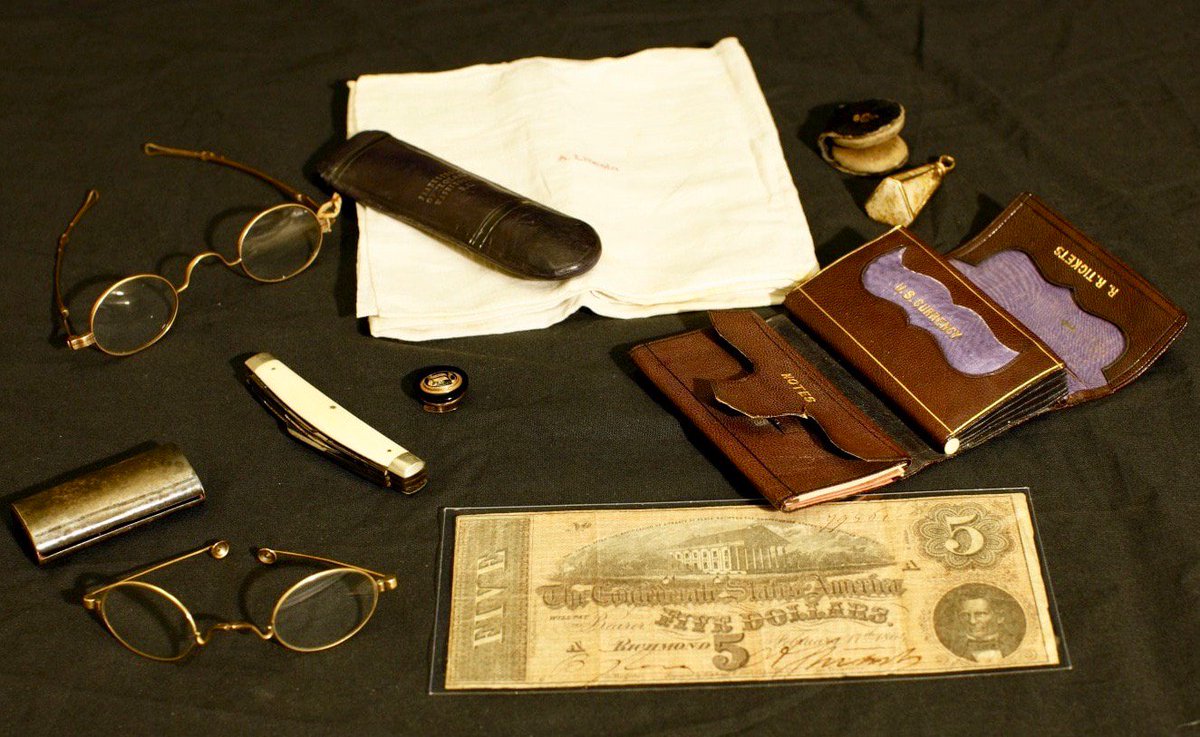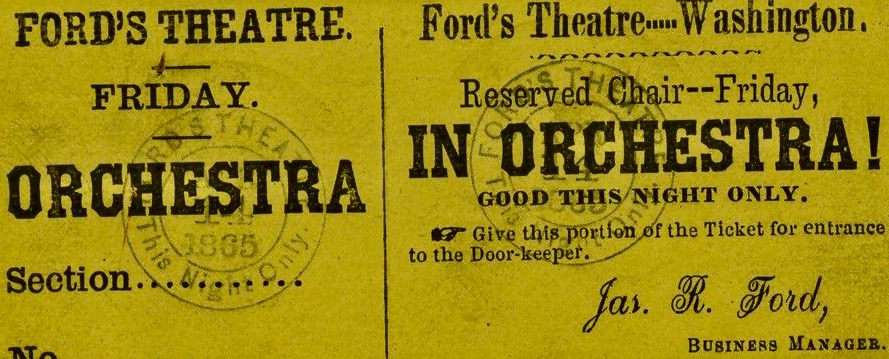American History
Related: About this forumOn the night of April 14, 1865, this was what Abraham Lincoln took with him to Ford's Theatre.
Link to tweet

Link to tweet

Thu Apr 14, 2022: From Michael Beschloss: Ford's Theatre, tonight, April 14, 1865
thucythucy
(8,135 posts)if not the single worst day, in American history.
Had Lincoln lived Reconstruction and the years after the Civil War would have been entirely different.
Lincoln was growing closer to the Progressive Republican program for Reconstruction. This included the seizure of the great plantation estates of rebel leaders and a broad program of land reform that would have benefited both recently freed slaves and poor whites. Lincoln especially wanted to include landless whites--even if they had fought for the Confederacy--as a way of giving them an incentive to support the new regime in the south. He also wanted suffrage immediately extended to Black men who had fought for the Union, and insisted this be included in the constitutions of re-admitted rebel states. He may well have evolved over time to insist on universal male Black suffrage, but we'll never know.
Andrew Johnson, by contrast, immediately pre-empted the possibility of land reform, and opposed most everything Progressive Republicans wanted by way of Reconstruction. He was entirely sympathetic to the south's white ruling class, and did everything he could to protect their interests. The result was Jim Crow and literally setting back the movement for Black civil rights for a century.
This is precisely what Booth--an avowed white supremacist--intended. His motivation for the murder was racism, pure and simple, something that historically has been glossed over in accounts of the assassination.
Bucky
(54,094 posts)The way it was resisted by the south, I think you would have seen just as much of a backlash against black voting and military occupation under a second Lincoln term. Resistance against his land reforms was going to be violent, no matter how many charming anecdotes Lincoln might have mustered.
thucythucy
(8,135 posts)but Lincoln at least would have tried, despite the backlash, to insure black suffrage and land reform. Indeed, it was his support for black suFfrage that was the final provocation for his assassination. Booth was there in the audience, and turning to a friend he said, "That means n**ger citizenship. That's the last speech he will ever make."
And since land reform would have benefited landless southern whites as well as blacks, there was at least the potential that it would have received some white support, which was a prime reason Lincoln wanted it extended to poor whites, even if they had fought for the rebels.
President Johnson actively opposed both black suffrage and land reform. His very first action after assuming office was to remove all seized rebel land from under the authority of the Bureau of Refugees, Freedmen and Abandoned Lands--"abandoned lands" being the plantations owned by rebel slave owners. The reason Johnson was finally impeached was because of his opposition to the progressive Republican program of reconstruction, a program Lincoln for the most part supported. After Johnson's trial in the Senate his removal from office failed by a single vote.
Lincoln's "charming anecdotes" masked an incisive mind that was acutely attuned to the political realities of the day. One demonstration of this was his masterly use of published editorials to sway public opinion. An account of his PR efforts can be found in Stephen B. Oates, "Abraham Lincoln, the Man Behind the Myths." Mark R. Neely's "The Last Best Hope of Earth" is also pretty good, as is James McPherson's "Ordeal by Fire: The Civil War and Reconstruction." David Blight's "Race and Reunion: The Civil War in American Memory" is good on the compromises with racism that doomed Reconstruction and led to the institution of Jim Crow.
Of course we'll never know what might have been, but we do have a pretty good idea of what was. Johnson's ascendance to the White House was an unmitigated disaster. It could hardly have been any worse under Lincoln.